News
Meal kits offer convenience, but do they deliver nutritionally?
3 Apr 2024A study examining the vegetable content of meal kit subscription services finds significant variations in quantity per serving, presenting an opportunity for brands to enhance their offerings with more veggies.
The proliferation of meal kit subscription services, in part due to the COVID-19 pandemic which saw the kits go mainstream, continues to grow across the globe. Marketed as a better alternative to eating out and a solution to the mental burden of meal planning, many people may assume that meal kits are inherently healthy.
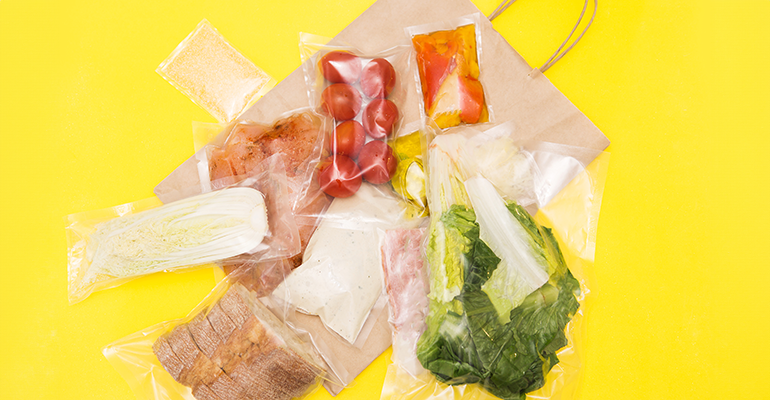
The study out of Deakin University in Melbourne, Australia, suggests this assumption does not always hold. The team of researchers is urging consumers to take more consideration when choosing meals to ensure they are getting the most out of their kit: “We found when it comes to nutrition, whether it be budget-friendly or high-end, it’s more about the meals you choose and less about what company to use.”
Meal kits typically work through a subscription service. Every week you choose the number of meals and the number of servings you want. You chose from a variety of recipes that often change seasonally and include diverse cuisines and dietary preferences. A three-recipe-per-week meal plan from HelloFresh Australia for two people will set you back $70 (€42) and recipes found on the website include Italian beef and cauliflower-potato topped pie, Baja-style prawn tacos, and Indian sweet potato and lentil dahl.
The study focused on the meal kit market in Australia and analysed the vegetable content of 179 recipes across nine Australian-based meal kits. Across all analysed recipes, vegetables per serving ranged from 0.7 - 7.5 serves, with a median of 2.5 serves. One standard serving of vegetables is around 75 grams. Discussing their findings, the authors of the study said: “At first glance, this looks promising. But on closer inspection, the number and types of vegetables vary a lot.”
The wide variability in vegetable content suggests that not all meal kit recipes guarantee a nutritious meal. Legumes, despite being packed with nutrients, only featured in 10% of all recipes, and although all meal kit companies offered vegetarian-based meals, almost one-third of them contained fewer than two vegetable servings per person. In addition, approximately 50% of all recipes provided at least half of an adult's daily vegetable requirements in one meal, yet a significant proportion included less than two servings per person.
Dinner is an opportune moment to pack in the veggies
Dinner is typically when people consume most of their daily vegetables, therefore meal kits have significant potential to help individuals meet their vegetable requirements, especially considering the gap between recommended vegetable intake levels from the World Health Organization and the current global consumption, which tends to be lower.
The team offered tips for consumers to get the most nutrition from their meal kits: selecting more vegetarian options; choosing recipes with a minimum of three different types of vegetables; choosing those with unfamiliar or new vegetable options; and making healthy subtractions or additions to the meal such as reducing the amount of stock cubes and seasoning blends and adding in more vegetables and herbs.
Brands need to tailor their strategies based on the regions they serve
Beyond nutrition, brands can gain a competitive edge by prioritising sustainability. Meal kits are often delivered to the door in plastic packaging to maintain the freshness of the meals.
According to Mintel’s 2023 report on global innovations in prepared meals and meal kits, eco-friendly packaging is one tangible step brands can take to reduce the environmental impact of their kits, either through using biodegradable and compostable materials or reducing the amount of packaging materials used. Notpla, a company specialising in seaweed-based packaging, became certified as plastic-free by the Dutch government in 2023 and has partnered with Dutch food delivery company Thuisbezorgd to deliver a range of cardboard boxes lined with seaweed and other plant extracts.
Collaborating with influential figures within the industry is an approach brands can take to resonate with consumers. HelloFresh is a global leading meal kit brand with a US market share of 74%. In New Zealand, HelloFresh makes up only 57%, with competitor MyFoodBag comprising 38% of the market, according to Statista. One reason behind the success of domestic brand MyFoodBag may be the celebrity appeal. Nadia Lim, a household name in New Zealand and co-founder of MyFoodBag, is a nutritionist, celebrity chef, and winner of the second season of reality TV cooking show MasterChef NZ.
Another crucial aspect for brands is understanding the region they are serving. According to Mintel, European consumers are looking to reduce their meat consumption, which has resulted in brands offering meat-free versions of popular meals. The North American region has seen similar trends in reduced meat intake but has also witnessed a resurgence of animal protein in meal kit launches, particularly beef, and chicken. Mintel notes that most adults in North America include meat in their diet, and around one-third of consumers prioritise spending on animal protein.
Related news
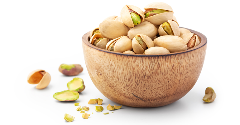
KoRo’s limited edition pistachio-packed waffle delivers balanced indulgence
26 Mar 2024
Natural food brand KoRo’s special edition vegan waffle crafted with 45% pistachios, stands as a healthy yet indulgent snack, embracing the nutritious appeal of nuts.
Read more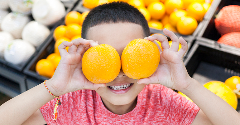
‘Miffy eats the rainbow’: Tips to market fruit and vegetables to kids
25 Mar 2024
Using a playful and colourful approach with storytelling can encourage children to try new varieties of fruit and vegetables, according to an ongoing Wageningen University study called ‘Miffy eats the rainbow’.
Read more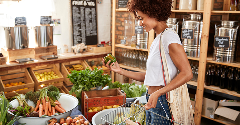
Are brands ready for new USDA organic food rules?
21 Mar 2024
The US Department of Agriculture’s (USDA) Strengthening Organic Enforcement rule will come into force on 19 March, with the aim of protecting consumers by preventing fraud in the organic supply chain. Are organic producers and brands ready?
Read more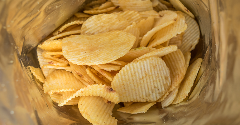
Ultra-processed food intake in South Africa at concerning levels, study suggests
19 Mar 2024
As South Africa considers introducing front-of-pack warning labels and strict marketing limits for unhealthy foods, research has found that low-income South Africans get around half of their calories from ultra-processed foods (UPFs) – “a cause for con...
Read more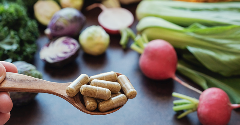
Food ingredients drive growth in beauty supplements
15 Mar 2024
As Japanese cosmetics giant Shiseido partners with a food ingredient supplier for the launch of its “inner wellness” division, food-based extracts are playing a defining part in beauty-from-within supplement launches in Asia and beyond.
Read more
Tesco trials first ever menopause-dedicated retail space
13 Mar 2024
The growing awareness about how the menopause can affect women’s health has prompted a slew of bespoke supplement and beauty products. Tesco has become the first major retailer to trial a dedicated menopause-friendly retail space.
Read more
Brazilian manufacturers must comply with warning label regulation, says court
7 Mar 2024
The Federal Court of São Paulo has ruled that Brazilian manufacturers must comply with front-of-pack labelling regulation that requires unhealthy products to feature warning labels, scrapping a last-minute one-year extension.
Read more
Generation X consumers lean into vitamin-based products
5 Mar 2024
Aged between 44 and 60, Gen X consumers want agency over their health and wellness and are adopting a preventative approach using vitamins and supplements to promote healthy ageing.
Read more
Pesticide residues in conventional baby food: A boost for organic?
29 Feb 2024
Nearly four in 10 (38%) of conventional US baby food products contain pesticide residues, according to research that also found that the organic samples were pesticide-free. Could this be an opportunity for organic or ‘pesticide-free’ produce?
Read more
Superfoods promoting positive gut health in 2024
28 Feb 2024
Thanks to their role in achieving and maintaining a healthy gut and digestion, several ingredients with nutritional properties are being hailed as superfoods.
Read more